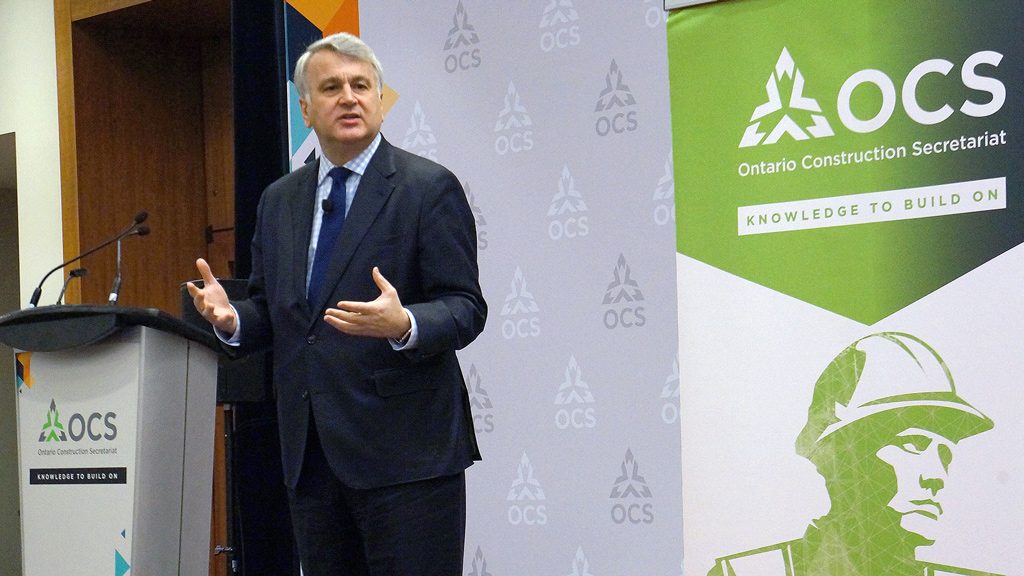One of Canada’s top pollsters has some sage advice for Canadian contractors partnering with international companies to bid on major local projects: focus on cultivating local relationships and creating jobs in the community or region.
That is because in a Nanos survey on the use of international versus domestic construction companies, 49 per cent of Canadians were opposed to outsiders working on Canadian soil, said Nik Nanos, executive chairman of the Nanos Research Group of Companies, a non-partisan company.
“They feel the benefits of those contracts are not realized in their community,” Nanos told a luncheon audience recently at the 19th annual Ontario Construction Secretariat’s State of the Industry and Outlook Conference in Toronto.
Only 41 per cent of Canadians favoured a low-bid approach, regardless of where the winning bid was from, he said.
“What it means is if you are a proponent on a large construction project and you don’t have a local partner that is going to be one strike against you,” Nanos explained.
“Think of the, not necessarily ‘buy Canadian’ (approach), but reinforce the local element” when it fits with the size and nature of your project.
“In this environment, for the people struggling to pay their bills and who are working hard…there is going to be a certain level of anxiety (about external companies),” he said. “If people feel threatened by foreigners, they will have a negative view of foreigners…regardless of whether it is good for the economy and the community.”
Nanos added even though most Canadians don’t want the country to run “big deficits” they support deficits if spending goes to infrastructure which creates visible improvements and jobs.
Don’t overlook the rise of populism (anti-establishment sentiments), however, he said.
He told the OCS audience that “symbolic” viewpoints, rather than “literal” fact-based viewpoints, are on the rise in populist times.
Doug Ford, for example, built his election platform on five symbolic bullet points that included a buck a beer and firing the top Hydro One executive.
“What he understood was firing that executive was a symbol that there are people getting paid too much and you (the general population) are still trying to pay your bills,” said Nanos.
It suggested Ford was going to “shake up the establishment.”
Nanos Research Group tracks the economy and polls consumer sentiment for Bloomberg News weekly. It has made 90-day projections for the past decade “and we have never been wrong,” he said.
“What we see in the next 90 days is a completely flat economy,” said Nanos, adding surveys tell him that people “are two-and-a-half times more likely to think that the economy will get weaker” over the next six months.
He predicted the federal Liberals will lose seats in every province except Quebec in the October election.
Without gaining seats in Quebec, the Liberals have no chance of forming a minority government, he told his audience.
Nanos said the Liberals might be wise to focus the re-election platform on the fight to save 9,000 jobs at SNC-Lavalin.
“It’s the upside on the SNC-Lavalin controversy.”
The pollster said it doesn’t take much to change the outcome of an election. If a politician can persuade only one of 20 voters in his main opponent’s camp to switch allegiances, then they can win.
“We tend to look at these elections as great uprisings,” he said. “Let me tell you this, that every government in Canada almost without exception — especially at the federal level — a majority of people vote against it.”











Recent Comments